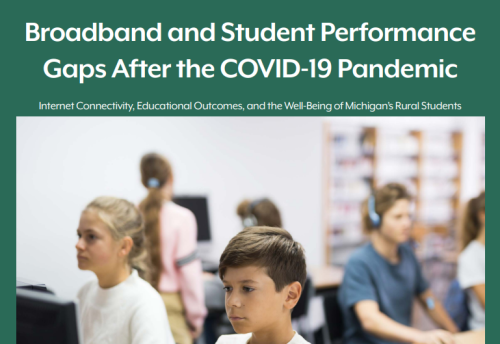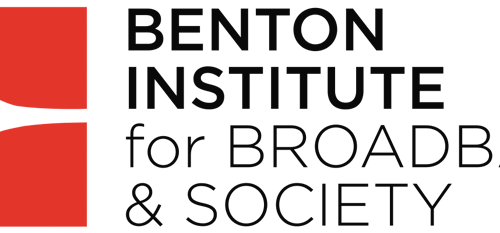Reflections, Visions, and Challenges: Discussions of the 20thAnniversary of the James H. and Mary B. Quello Center
On 12 April 2018, the Quello Center celebrated the 20thAnniversary of its founding with an open house at the Center and forum that engaged friends and associates of the Center in reflecting on its past and future with short presentations on key challenges on the road ahead.
The day was similar to many academic events in showcasing informative presentations about the issues of policy and regulation in the digital age, but unusual in creating a stronger sense of responsibility to ensure the realization and continuation of James Quello’s dream for his Center. It is difficult to convey the personal stories and presentations that led to such a powerful outcome of this event, but the following points of summary and conclusion seek to capture key aspects of each session and the day as a whole.
The Welcome and Introduction
The Director of the Quello Center, Professor Bill Dutton, welcomed everyone to the forum, outlining the plan for the day. Dutton noted the context that Mark Zuckerberg provided over the two previous days of testimony to the U.S. Congress about the issues facing Facebook. The Facebook fiasco illustrated so well the degree that there is an absence of clear and appropriate policy and regulatory approaches to the issues facing the Internet, social media and related media, information, and communication technologies of the digital age. The mission of the Quello Center – to stimulate and inform policy and regulation for the digital age – is clearly of value in the present and foreseeable context. The public and politicians are asking for something to be done to protect privacy and other key values, but we lack appropriate models for accomplishing their aims.
Bill Dutton introduced the Chair of the Quello Center’s Advisory Board, Brian Fontes, who is the CEO of the National Emergency Number Association since 2008. Fontes was on Commissioner Quello’s staff at the FCC well before the Center was established and has served as the Chair of its Advisory Board since its inception. He spoke of the commitment and personality of Jim Quello, and conveyed the early steps in establishing the Center. An initial contribution from John Kluge was discussed as a contribution to creating a Chair at MSU in honor of Jim and Mary Quello. It was discussion of the chair with MSU Dean James Spaniolo and others that led to the larger idea of a Chair associated with a Center in their name. Fontes ended by thanking everyone for joining the forum, and introduced Susan Quello, the granddaughter of Jim and Mary.
Susan Quello, herself a researcher at the Scripps Institute in La Jolla, California, conveyed the loyalty and love of MSU that was held by her grandparents, who met while students at MSU. She was able to communicate the depth of their commitment to the university, and the pride they felt in the establishment of the Center in their names for perpetuity. She reminded the attendees of Jim Quello’s compulsive drive to succeed and that her grandfather lived and breathed for broadcasting and broadcasting regulation. Susan Quello concluded with a definition of success to describe her grandfather, “when you wake up every morning, however old or young, and bound out of bed because there is something out there that you love to do. Something that you believe in, that you’re good at. Something bigger than you are, and you can hardly wait to get out and begin today.”
Quello Center 20th Anniversary Talks: Part 1 from Quello Center on Vimeo.
Reflections on James H. Quello and the Center
Professor Bibi Reisdorf, Assistant Director of the Quello Center, and Assistant Professor in the Department of Media and Information, introduced the speakers for this first session, and moderated the discussion. She organized the discussion around a set of questions about how each first met James Quello, special moments and memories, how the idea for a research Center in his name first began, and events or other notable things that stood out to the panelists throughout the 20-year history of the Center.
Richard E. Wiley, Chairman and Co-founder of the Washington, DC law firm of Wiley Rein LLP, was on the big screen, teleconferencing from DC. Wiley described Jim Quello as being a practical person with unusually strong common sense. He emphasized the commitment of Quello to supporting scholarly research but also to moving beyond research for its own sake to contributing to its practical application, such as in shaping policy and practice. He applauded the Center for its work in realizing this vision on behalf of James and Mary Quello.
Karole White, the President and CEO of the Michigan Association of Broadcasters (MAB), communicated a personal sense of the man and his colorful language and character. She told a touching story of how he was always supportive of her to the point that during his very last days he called to support her, saying how she was so gifted with people that she should be a politician. All were amazed to learn of how so much of his last days were spent in building up his friends, associates, and family.
The Founding Director of the Quello Center, and Quello Professor Emeritus Professor Steve Wildman, spoke of how he knew of James Quello by reputation long before he met him. Wildman was amazed by Quello’s network of friends and associates in the FCC, government and industry, and the force of his drive and personality – even exhibited in his driving his many awards and plaques all the way from Washington, DC to East Lansing in the back of his car.
The session was rounded off by additional memories and responses from Brian Fontes and Susan Quello, who both recalled James Quello’s vision for the Center as an independent and cutting edge research center that would not only result in high quality research, but also inform policy in media, communication, and information.
Visions of the Next Decade(s)
Professor Laleah Fernandez, a post-doctoral researcher and fellow at the Quello Center, introduced and moderated the second session, focusing on ways forward for research and outreach of the Center.
Dean of the College of Communication Arts and Sciences, Prabu David, emphasized some of the strategic directions of the College. The Dean described how the Quello Center’s work fits into major initiatives, such as its interest in policy and its initiative with WKAR to create an innovation lab for next generation public broadcasting.
Professor Natascha Just of the Department of Media and Information spoke of some of the key intellectual challenges in moving forward, such as in reconceptualizing key issues and conceptualizations for the digital age. Just described how the Center is well poised to help shape and redefine the conversation surrounding media and information policy research.
Professor Johannes Bauer, Chair of the Department of Media and Information, conveyed his vision of the Center. Bauer said he sees the Center becoming a hub for the College and the University – a place to connect academics across the university, but also to connect academics with people in the policy community from the local to global arena on such issues as freedom of expression, ownership, and communication policy generally.
Challenges
Two presentations followed the panels. The first focused locally, on networking Detroit, and the second on the future of broadcasting, with implications for local developments at WKAR.
Networking Detroit
Marc Hudson, the Co-founder and CEO of Rocket Fiber, described his transition from a student in telecommunications at MSU’s College of Communication Arts and Sciences. This background, he explained, led to a job at Quicken Loans, which fostered his idea of building a fiber optic network in Detroit. That fiber network, known as Rocket Fiber, was first intended to link the many acquisitions of Dan Gilbert, the founder of Quicken Loans and Rock Ventures. Now the CEO of Rocket Fiber, Hudson spoke about the early years of Rocket Fiber and their plans for the future. He also described his current roles in the FCC’s Broadband Deployment Advisory Group of the FCC, and Michigan Consortium for Advanced Networks. Rocket Fiber supported Quello Center research in 2018 that examined the nature of the Detroit digital divide.
Quello 20th Anniversary Part 2 from Quello Center on Vimeo.
Moving to the Next Generation of Broadcasting
Vincent Curren, a Principal in Breakthrough Public Media Consulting, then spoke about the history and future of broadcasting, focusing on the development and implementation of the new broadcasting standard ATSC 3.0, which will foster Internet Protocol (IP) broadcasting. Curren noted that the development of ATSC 3.0 is currently focused on commercial use. He emphasized the role that Quello could play in exploring public service capabilities in the development of ATSC 3.0 by partnering with WKAR.
Quello 20th Anniversary Part 3 from Quello Center on Vimeo.
Concluding Discussion of Reflections, Visions, and Challenges
Bill Dutton moderated the final panel that raised some concluding points of summary and discussion for the day.
Roderick (Rick) Coy, with the law firm of Clark Hill, led off with an overview of the decades since the introduction of the Quello Center 20 years ago, tracing change in the technical and policy landscape over the years. Coy referred to the Quello Center as a “God send” when it entered the scene in 1998. He recalled how the media landscape was changing dramatically at the time, and increasing complexities surrounding telecommunication law and regulation lacked objective research to help inform decision makers and professionals.
Brian Fontes returned to a discussion of the many personal qualities of James Quello and his visions for the Center. He reminded attendees of Quello’s optimism and excitement about the potential of information and communication innovations. Fontes stressed how Quello was most interested in and concerned about the impact of innovation on both business and communities served. He applauded the Quello Center for its focus on industry and community impact projects and research.
Jim and Mary Quello’s granddaughter, Susan Quello, concluded by thanking the participants, and noting how honored and pleased her grandfather would be – in fact the might well be smiling on the proceedings. She reiterated the qualities and strengths of her grandfather, including his ability to bridge partisan divides and make decisions based on his moral compass. Susan Quello thanked the Center for taking care of Jim Quello’s legacy through passion driven research.
Bill Dutton thanked everyone, particularly Susan Quello, for making this anniversary so memorable, and instilling a sense of responsibility to ensure that the Center maintains and enhances its mission of stimulating and informing debate over the policy, regulatory and management issues of the digital age in ways that have practical relevance for the industry and society as a whole.
Bill Dutton, Laleah Fernandez, and Bibi Reisdorf



